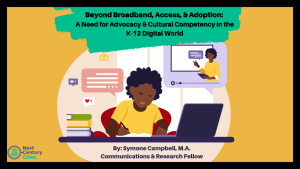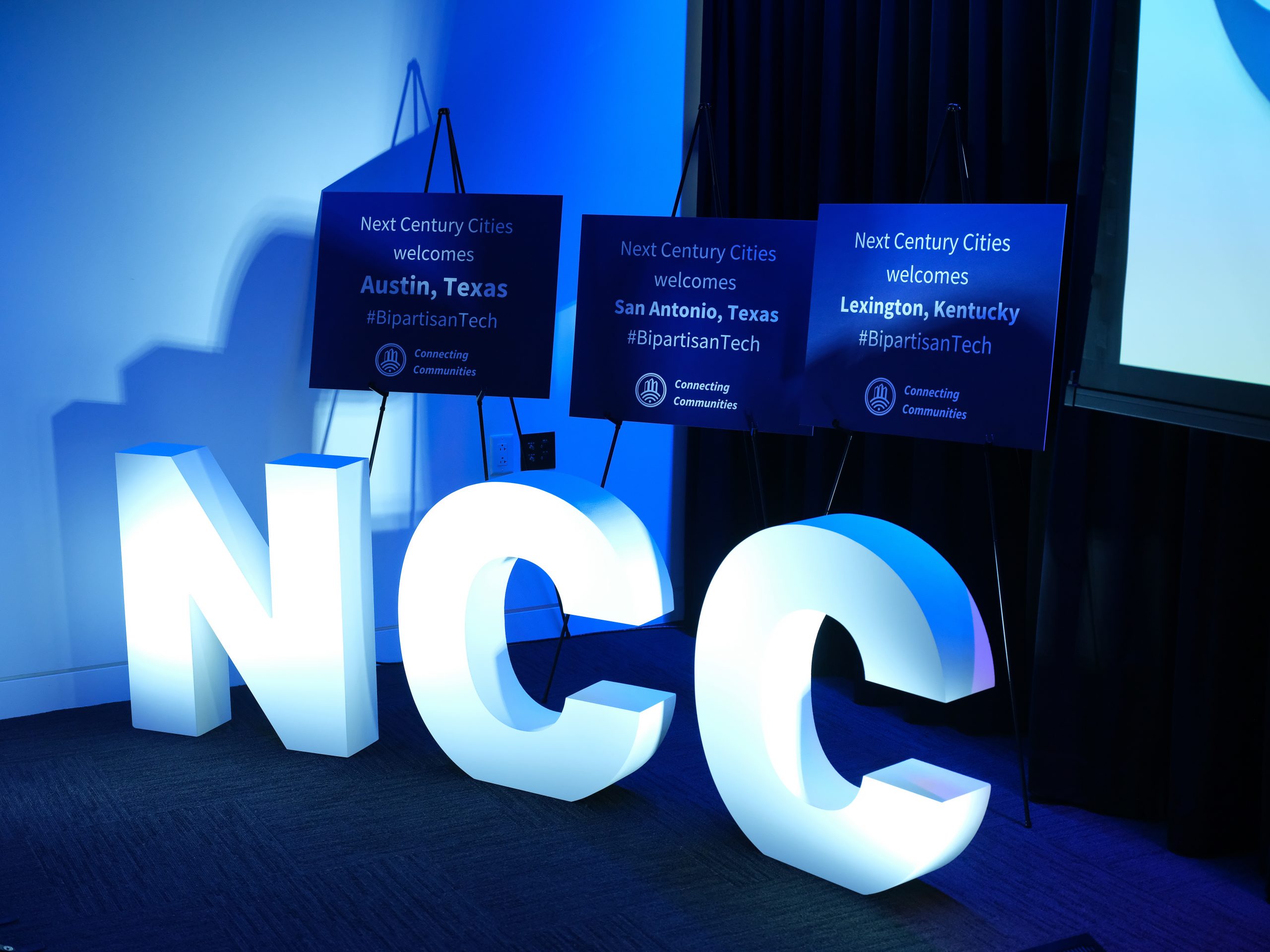By Symone Campbell, Research and Communications Fellow

Challenges within the American educational system have been documented since its establishment. Educational barriers acutely impact the country’s marginalized populations. The most recent area of focus has been the impact of the COVID-19 pandemic.
Reports have suggested the COVID-19 pandemic has led to a decline in two decades worth of progress in educational testing scores and comprehension for kindergarten through twelfth grade (“K-12”) students nationally. Among the most impacted students are low-income Black, Latinx, and Tribal youth. Although historically, federal funding has been allocated to provide these students with access to educational technology, disparities persist.
Beyond Broadband, Access, and Adoption: The Need for Advocacy and Cultural Competency in the K-12 Digital World provides a historical overview of how educational access barriers that have been perpetuated by the digital divide affect low-income, Black, Latinx, and Native students. Specifically, the report draws correlations between disenfranchised students who were further disadvantaged by broadband access and adoption barriers during the COVID-19 era. The analysis includes examples of the detrimental effects in addition to information about federally-funded and community-based programs that support cultural competency.
The report zooms in on local community organizations working to advance digital equity. They are located throughout states where several Next Century Cities municipalities are situated, including Florida, Michigan, Missouri, New Mexico, and New York. It concludes with important considerations for ensuring that K-12 low-income students of color have adequate access to educational technology:
-
Access to the Internet and digital devices is a civil right because they are proven to be necessary for a better quality of life. If students do not have Internet access, in a digital society, they cannot have equal access to education.
-
History indicates that barriers to accessing an adequate education for students of color are a structural issue rooted in race and class. These foundational barriers must be addressed in order to understand how digital access impacts educational outcomes.
-
Community-based initiatives that center advocacy and cultural competency are critical to providing K-12 low-income students of color with access to the Internet, digital devices, and digital literacy.
-
More research must be conducted that employs a critical lens to broadband access and technology use in student populations.
Read the full report here. To request a print version of the report, please email info@nextcenturycities.org.

